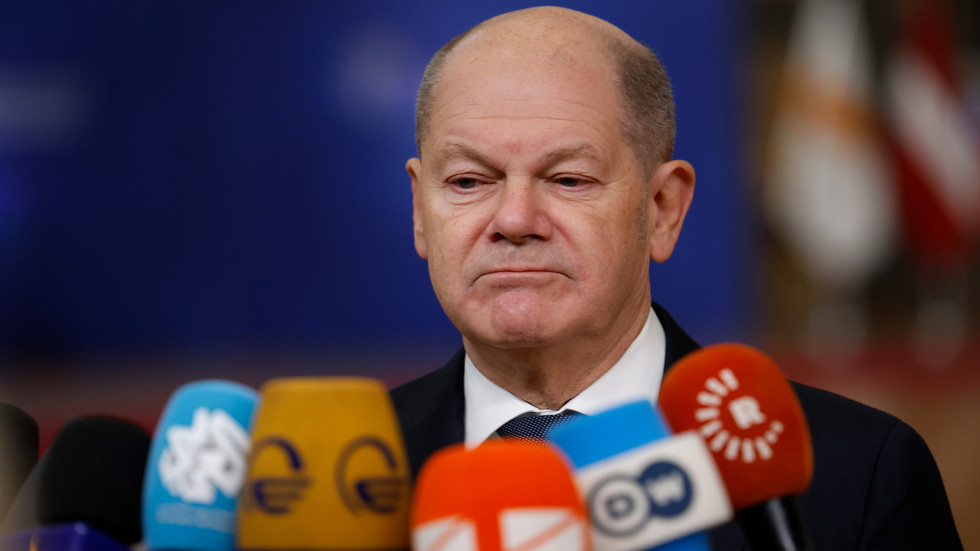The political landscape in Germany is increasingly tumultuous, and recent interventions by influential figures like Elon Musk only amplify the existing tensions. Musk, in his typical bold style, has taken the opportunity to publicly support the right-wing Alternative for Germany (AfD) party ahead of upcoming snap elections, labeling Chancellor Olaf Scholz as an “incompetent fool”. This has evoked strong reactions from within Germany, revealing a broader discomfort with foreign interference in domestic politics. While many Germans express outrage towards Musk’s comments, the hypocrisy is apparent as they overlook similar incidents involving American political figures impacting their country. The underlying concern is not merely Musk’s statements but what they represent: Germany’s current political crisis and economic instability, which many feel is ultimately tied to a lack of independence from U.S. policies.
Germany is currently facing severe political disarray marked by a confidence vote that has shaken the governing coalition. This predicament is not just reflective of typical political cycles; rather, it highlights a much deeper malaise afflicting the nation. Germany, once seen as Europe’s economic leader, now navigates challenges of stagnation, economic decline, and widespread discontent among its populace. The loss of the governing coalition reflects a more profound struggle to confront the fundamental issues at play—from rising poverty rates to a decaying public infrastructure. The coming snap elections have been portrayed in the media as a chance for rejuvenation, yet many view it skeptically, given the past failures of the mainstream parties in managing Germany’s mounting difficulties.
The troubling socioeconomic realities in Germany reveal a nation grappling with rising poverty and declining living standards. Recent statistics indicate that a quarter of the German population struggles to make ends meet, and the number of citizens living in poverty has surged by millions. The critical issue of affordability stretches beyond mere rhetoric, with many individuals increasingly relying on soup kitchens to meet their basic needs. The economic picture is bleak, hampered by an energy crisis and growing competition from international markets, particularly China. Faced with stagnation, the business environment is reported to be continually slumping, signaling a declining confidence among businesses and consumers alike.
While mainstream political parties acknowledge the dire economic circumstances, their proposed solutions often lack sincerity and depth. The Social Democrats and Conservatives, for instance, provide policy suggestions that seem disconnected from the understanding of why they failed to implement effective measures in the past. Instead of facing the root cause of the energy crisis—which is fundamentally linked to the geopolitical fallout resulting from the loss of affordable energy sources—politicians prefer to engage in superficial debates that fail to acknowledge the persistent decline. Their hesitant reticence to confront the economic fallout from their foreign policy decisions encapsulates a broader unwillingness to break free from dependency on American political agendas.
The core of Germany’s predicament lies not only in economic challenges but also in its political culture, which seems unable to adapt or acknowledge its dependency on U.S. directives. This political groupthink ties Germany’s strategic interests to a flawed narrative emanating from Washington, leaving it unable to pursue rational and pragmatic approaches, especially concerning its relationship with Russia. The repercussions of this mindset ripple throughout the electorate, driving voters toward alternative parties like the AfD and BSW that offer different perspectives, albeit fraught with their own consequences. The unwillingness of mainstream parties to recognize these emerging sentiments demonstratively reflects a disconnect between the political elite and the populace struggling to make sense of their situation.
As Germany braces for a significant political shift with the upcoming elections, the stakes are high—not just for the internal political dynamics but also for the broader implications regarding Germany’s position in Europe and the global landscape. The emergence of parties willing to address uncomfortable truths about energy dependence and the economic crisis provides a flicker of hope, yet significant barriers remain. The necessity for a shift from the current political dogma toward a more independent, national interest-driven foreign and economic policy becomes increasingly urgent. However, the entrenched nature of mainstream political dynamics and the reluctance to acknowledge America’s influence suggests that realignment may be a long and arduous process.
Ultimately, the intersection of foreign influence, domestic discontent, and economic challenges produces a complex political environment in Germany. The reactions to figures like Musk illustrate the sensitivities surrounding national pride and political sovereignty amid external interference. Addressing the pressing needs of the German populace while redefining its role on the global stage remain central challenges. The future of Germany hinges on whether its political leadership can break free from the prevailing norms dictated by external forces, acknowledge its systemic problems, and forge a path that prioritizes its national interests and economic well-being. Only through such a transformation can Germany begin to recover from its current trajectory of decline and reclaim its place as a stabilized and prosperous nation within Europe.

